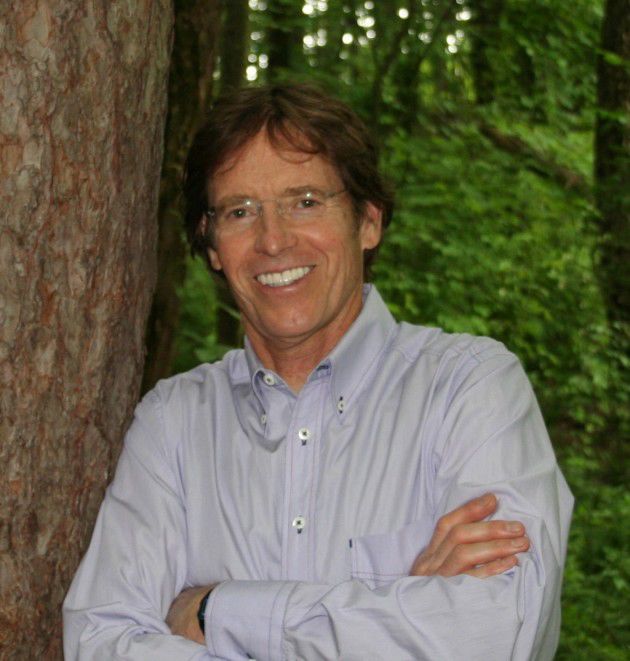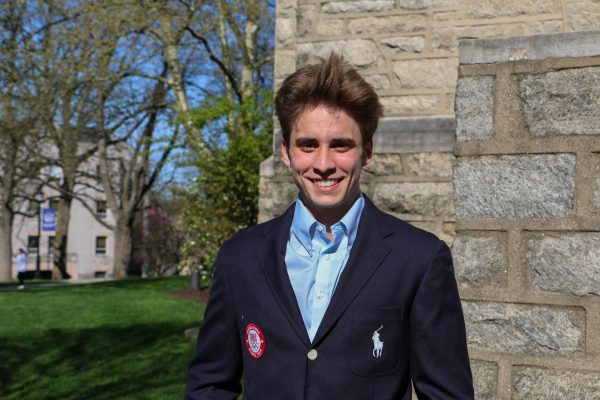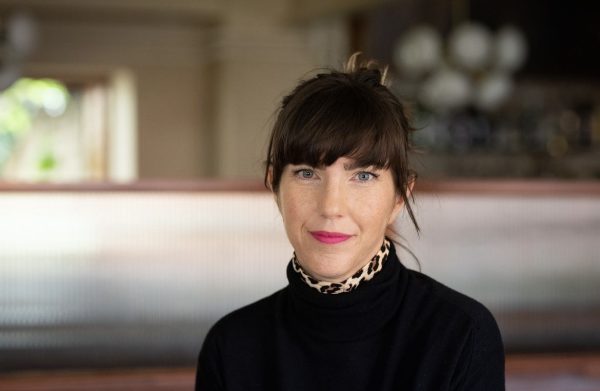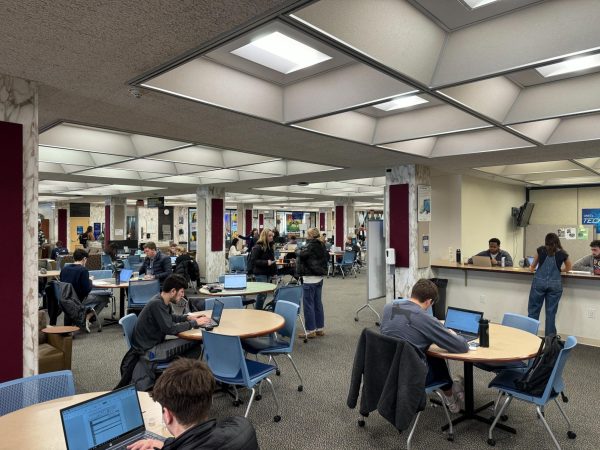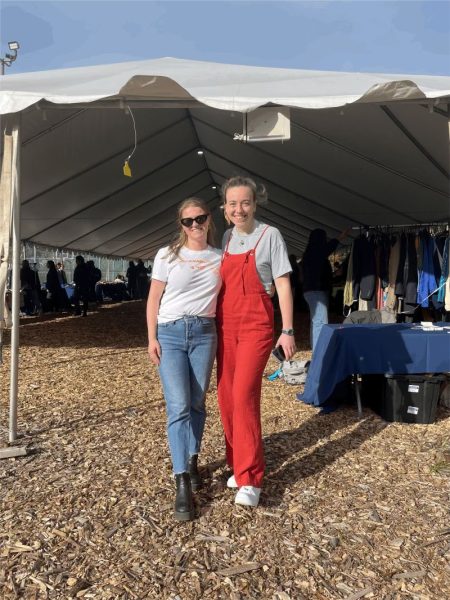Dr. Oppenlander inspires thoughts on sustainability
November 20, 2014
When students walk around the dining hall at dinnertime, many of them have concerns when it comes to deciding which foods to eat. Health, taste and allergies are among some of the most common factors in play when students choose what to have for dinner. But what about thinking of global effects such as biodiversity, poverty, climate change, pollution and, most importantly, the earth’s sustainability?
The university’s Dining Services welcomed Dr. Richard A. Oppenlander, renowned author of “Comfortably Unaware” and “Food Choice and Sustainability,” to speak about how our choices in diet have major consequences in the well-being of our environment on Thursday, Nov. 13. At 6 p.m., students and faculty packed the Driscoll Auditorium to hear his captivating presentation and ultimately engage in this critical conversation.
Director of Dining Services Timothy Dietzler introduced Oppenlander as a researcher and novelist whose books have been considered “must reads” by Ellen DeGeneres, Jane Goodall and Neal Barnard. For 40 years, Oppenlander studied animals and farms across the world gathering data for his books and speeches. In his introduction, Dietzler also gave a brief history of the Villanova Dining Service’s involvement with and commitment to sustainability, the major focus of Oppenlander’s talk.
Oppenlander began his presentation by accurately defining the word “sustainable.” Sustainability is the well-being of our planet connected to energy, waste, social and economic factors. However, food choice, he argues, is the single most important factor to consider when thinking about the sustainability of earth. This is because it holds the potential solution to the problem of “Global depletion.”
Global depletion is the term that Oppenlander uses to describe our loss of primary resources on earth and our own health. In order to sustain these resources, we must look at how the problems of our earth, such as hunger, poverty, water scarcity, climate change, etc., connect to our food choices.
For example, many believe that transportation is the leading contributor to greenhouse gas emissions. However, statistics show that 13 percent of these gasses come from modes of transportation, while 51 percent come from the production of livestock. This, Oppenlander says, is a cause for alarm and immediate action.
“There are many ways to face this problem of climate change, but only one will have drastic immediate actions,” Oppenlander says. “We can reduce greenhouse gas emissions by reducing our dependency on gas, oil and coal, and using more renewable energy through solar and wind structures, but those are projected to take at least 20 years and cost $20 trillion. We don’t have 20 years, or $20 trillion. If we stop eating animals, we can start the solution today and it won’t cost anything.”
There is a problem here with “adapting” versus “mitigating.” Many countries are seeking to adapt to climate change. Oppenlander emphasized that adapting is the wrong approach, because it will not get rid of the detrimental effects. Instead, he argued that countries should attempt to mitigate climate change and therefore reduce its catastrophic consequences. This can happen by focusing on food production and regulating the food choices made by citizens.
It is important to note that global warming is just one component of the much larger, more profound problem of global depletion. Other contributing factors to global depletion are also related to food consumption.
Fishing, for example, harms our oceans in several ways. When fish farms use immense nets to capture certain species, many other species are killed in the process. Oppenlander calls this type of slaughtering “bykill.”
Bykilling species has cascading effects. For example, when krill is bykilled, the main food supply is taken away from other species. Those species, in turn, struggle to support themselves with proper nutrition. Soon enough, the entire food chain is thrown off. This is another major reason for concern, and another reason why consumers should think twice when choosing to eat fish.
The inevitable question came towards the end of his presentation: Without consuming animals, how should we get the proper protein in our diet?
The solution to this problem is easy, and Oppenlander has been following it himself for forty years: a plant-based diet. This diet consists of fruits, vegetables, grains, beans, nuts, legumes and seeds.
Eliminating meat from our diets will not only help the planet but also our personal health, Oppenlander explained. The four leading causing of death in the United States are all linked to meat consumption. For example, those who do not eat meat are 50-70 percent less likely to have cancer.
“We can all be heroes,” Oppenlander said. “The stage is set with a clear goal in sight to eliminate the practice of raising and consuming animals. But it will need to be a collective effort involving leaders to steer consumers in the right direction and consumers willing to follow that direction.”
Throughout his presentation, Oppenlander projected many provoking images onto the screen behind him. He showed chickens being slaughtered, mocking the idea of them being considered “real food.” One image presented the fins cut off sharks, to show how shark death is a byproduct of our desire to eat fish. A few images were photos of Oppenlander himself posing with cows, emphasizing how these animals should not be considered “protein.”
Oppenlander pointed to one cow and smiled.
“This one guy right here,” he says, “his name is Plato.” The audience sighed in a collective moment of awareness.
After the talk ended, there were refreshments served along with a buffet of healthy, sustainable, plant-based food options including fruit, hummus and sunflower seed fudge.
Some students remained in the auditorium for a question and answer session and booking signing.
Overall, the talk was incredibly successful. It presented new ideas with an urgent tone, causing students and faculty alike to rethink their daily meal choices.
“I haven’t been able to stop thinking about it since,” Campus Ministry Intern Erica Stewart said. “Even in the cafeteria, looking at all the meat options really just made me stop for a second and reflect on where it’s all coming from and the resources that are needed to bring it to my table. I hope the people that attended think more deeply about how their food choices are affecting the planet. Unfortunately it’s not just about a cheeseburger, it’s so much more than that.”

